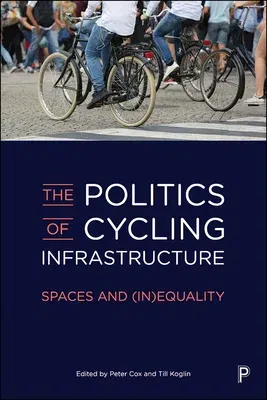The Politics of Cycling Infrastructure: Spaces and (In)EqualityPaperback, 14 August 2021

Qty
1
Turbo
Ships in 2 - 3 days
In Stock
Free Delivery
Cash on Delivery
15 Days
Free Returns
Secure Checkout

Print Length
224 pages
Language
English
Publisher
Policy Press
Date Published
14 Aug 2021
ISBN-10
1447345177
ISBN-13
9781447345176
Description
Product Details
Book Format:
Paperback
Country of Origin:
GB
Date Published:
14 August 2021
Dimensions:
23.37 x
15.49 x
1.78 cm
ISBN-10:
1447345177
ISBN-13:
9781447345176
Language:
English
Pages:
224
Publisher:
Weight:
408.23 gm